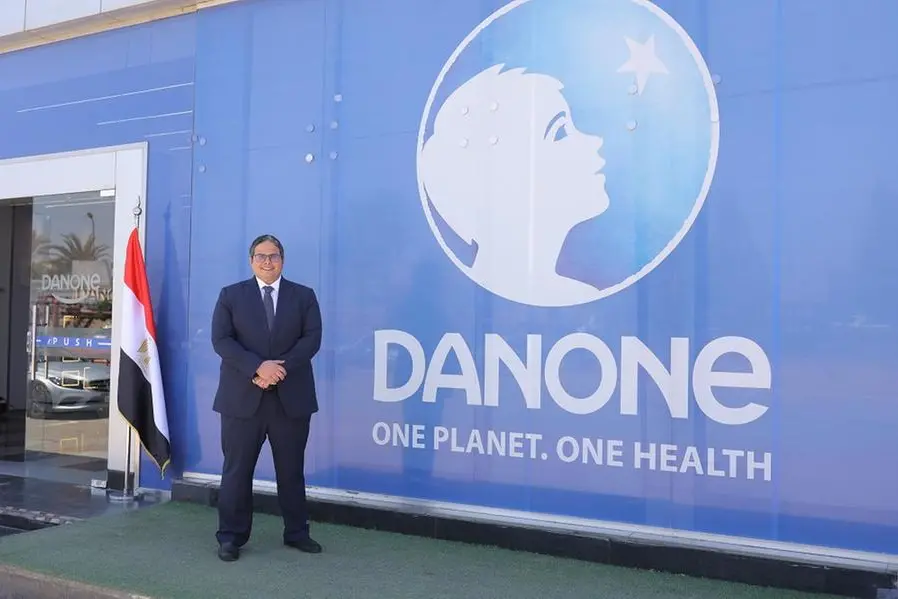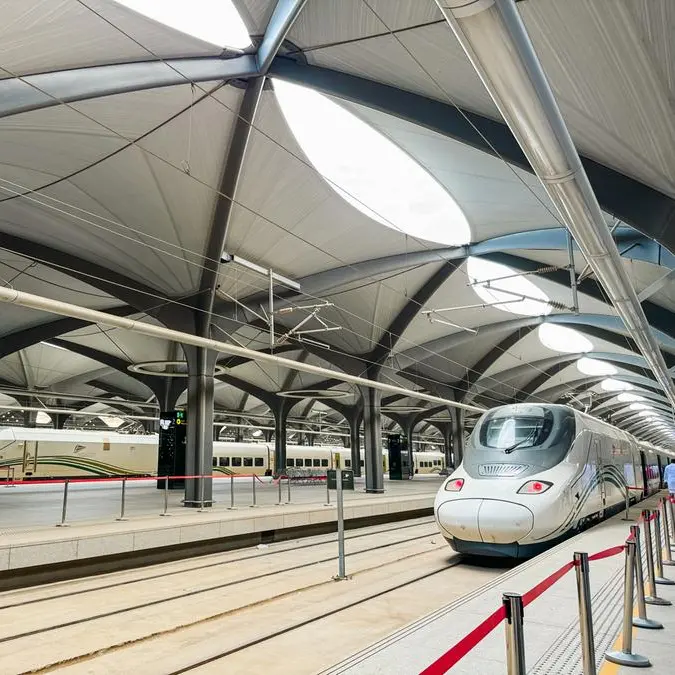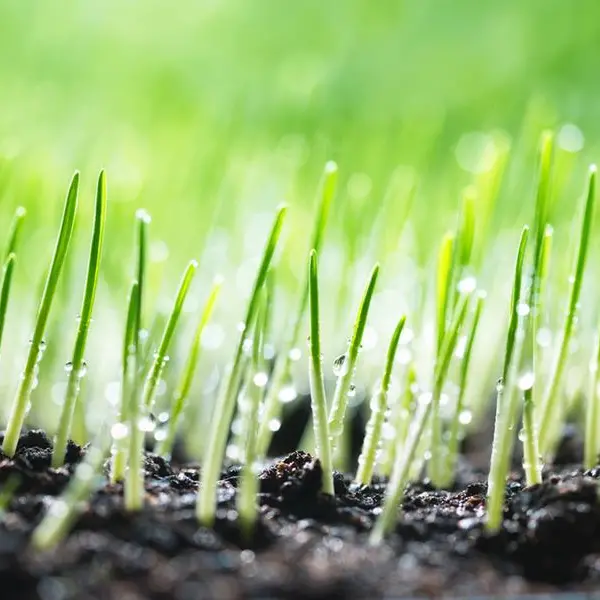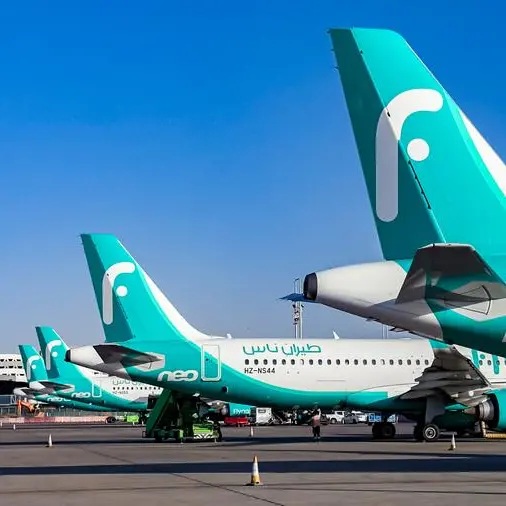PHOTO
Danone Egypt has long been a significant player in Egypt's FMCG industry, leveraging factors like skilled labour, cost-effectiveness, strategic location, and quality standards. With localisation on the rise in Egypt, Danone has successfully covered 70 percent of its needs from the local market.
“We aim to reach 90 percent by 2026 through enhanced collaboration with local suppliers,” said Hesham Radwan, General Manager, Danone Egypt, in an interview with Zawya Projects.
He said localisation of raw materials, packaging, supplier development, and ingredients emphasises Egypt's role in the global food and beverage industry.
“Furthermore, our vision is for Egypt to serve as an export hub not only from finished products but also on raw materials, pack and services,” noted Radwan.
He underlined that innovation is key for Danone Egypt's market leadership with the company adapting to consumer needs by launching new product sizes to combat inflation, introducing a local brand for rural areas, focusing on protein and indulgence for urban areas and fortifying children's products with essential nutrients to help combat iron deficiency anemia.
In order to deliver healthy food products throughout Egypt, the company established the OMDA project over a decade ago. The project, essentially a micro-distributors network, empowers local entrepreneurs to deliver the company’s healthy products while improving income of small retailers.
“Today, we have more than 40,000 retailers covered by the OMDA model in rural areas,” noted Radwan.
Excerpts from the interview:
Could you elaborate on Danone Egypt’s role in the Egyptian economy?
Presently, Danone's investments in Egypt have surpassed a significant milestone, reaching a total value of 1.9 billion Egyptian pounds. Looking ahead, Danone is committed to further amplifying its contributions to the Egyptian economy by doubling the investments in the foreseeable future. This strategic move aims to boost production capacity and facilitate the expansion of Danone's export capabilities from Egypt.
Danone Egypt is committed to the Egyptian economy through its contributions to sustainable job creations, economic growth, and investments in local communities. As a leading FMCG company, Danone Egypt not only provides employment opportunities for 3,000 direct and indirect individuals but also supports more than 10,000 local smallholder farmers and suppliers through its sourcing activities. Additionally, Danone Egypt's commitment to sustainability and corporate social responsibility initiatives further enhances its positive impact on the Egyptian economy.
How are you implementing sustainability goals and efforts at Danone Egypt and what is the company doing to reduce its environmental impact?
We are committed to achieving strategic goals in line with the United Nations SDGs and Egypt's Vision 2030, focusing on health, innovation, and sustainable growth. Danone Egypt has always placed sustainability at the heart of our operations focusing on the reduction of CO2 emissions, enhancement of waste management practices and the empowerment of small-holder farmers, most of whom are women.
Most recently, we partnered with Shift EV to convert 50 percent of our distribution fleet to Electro-fitted refrigerated light trucks (pickup trucks). This strategic initiative is aimed at reducing carbon emissions by more than 6,000 metric tonnes by 2030—an impact equivalent to planting 240,000 trees. Additionally, this transition results in a remarkable 70 percent reduction in operating costs. By embracing cleaner transportation, we actively contribute to a greener future while optimising our operational efficiency.
How is Danone Egypt contributing to the development of the local community?
At Danone Egypt, we are dedicated to contributing to the development of local communities through various initiatives and partnerships. We also collaborate with local and international organizations and NGOs to address social issues and promote sustainable development through our programs such as El-Omda, Kheir Ardena ‘Soybean Localization Project’, and Alban Baldna ‘Milk Collection Centres’ which is one of the most impactful projects by Danone Egypt that started more than ten years ago.
The Alban Baladna project launched in 2010, in partnership with CARE International and Danone Ecosystem Fund, to create the Milk Collection Centres (MCCs) and empower smallholder dairy farmers by offering a various number of services: from logistical support and agricultural services, to trainings in order to develop the technical know-how crucial to earning a sustainable income. Through MCCs, the quality of milk produced by small farmers improved, and the project helped Danone secure up to 25 percent of its raw fresh milk needs.
Since the launch of the project 8,500 farmers improved their livelihoods, 95 percent of them being women. It also created more than 200 jobs, addressing the chronically high unemployment rate in rural Egypt.
Alban Baladna project has received the prestigious Arborus 2022 Award for Gender Equality Diversity and Internal Standards for its solutions addressing social, environmental, and economic challenges in Egypt.
What are your plans for the future growth of Danone Egypt?
Expanding into new markets is a key focus for us. Presently, we have successfully established export channels to Libya and Mauritius, and we continue to actively explore opportunities in additional markets. Furthermore, we are working on a supplier development programme to elevate the overall quality and efficiency of the manufacturing sector in Egypt.
To better cater to the preferences and requirements of Egyptian consumers, we place a strong emphasis on ongoing research and innovation (R&I) efforts. Our dedicated R&I initiatives are designed to gain valuable insights into the unique taste preferences and needs of Egyptian consumers. As a result, we are able to develop and introduce innovative products that align with their preferences.
(Reporting by Eman Hamed; Editing by Anoop Menon)
Subscribe to our Projects' PULSE newsletter that brings you trustworthy news, updates and insights on project activities, developments, and partnerships across sectors in the Middle East and Africa.





















